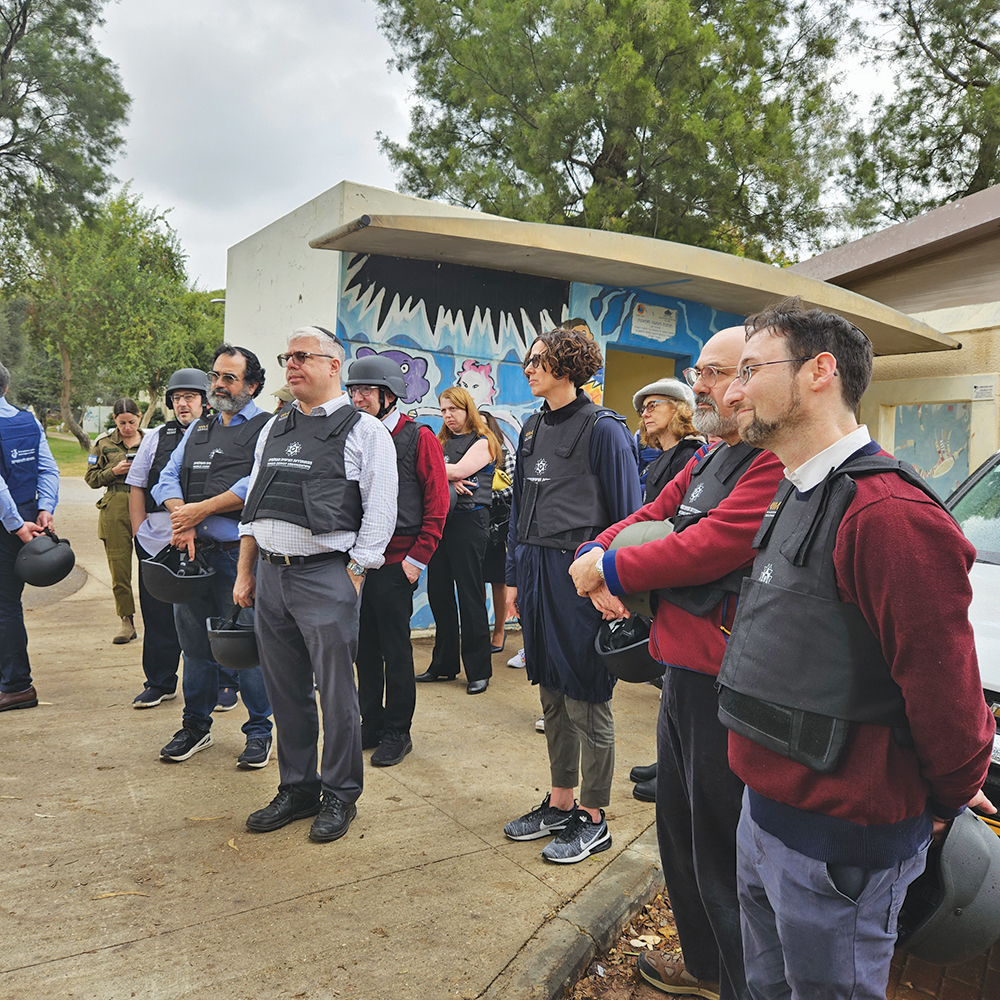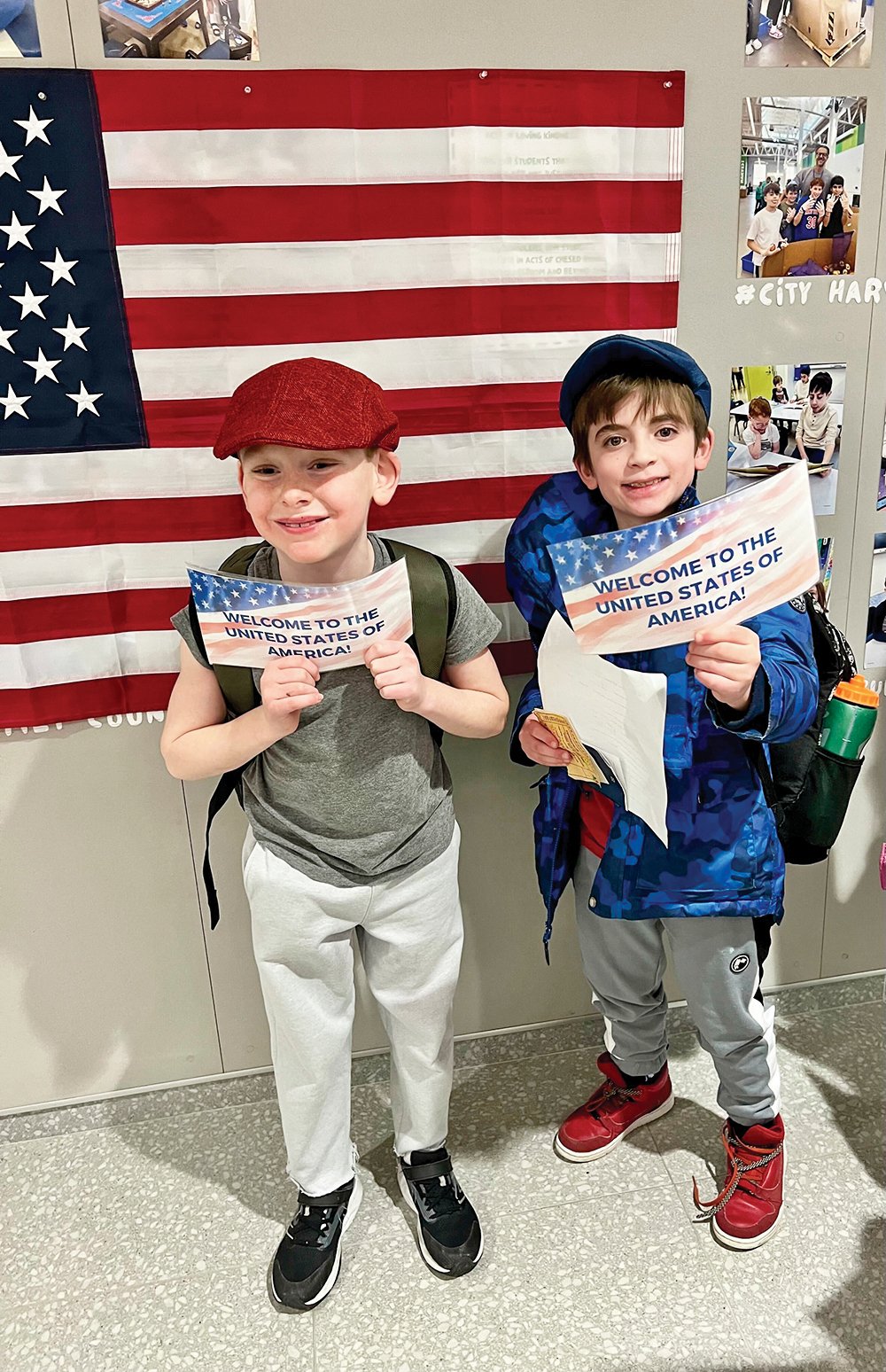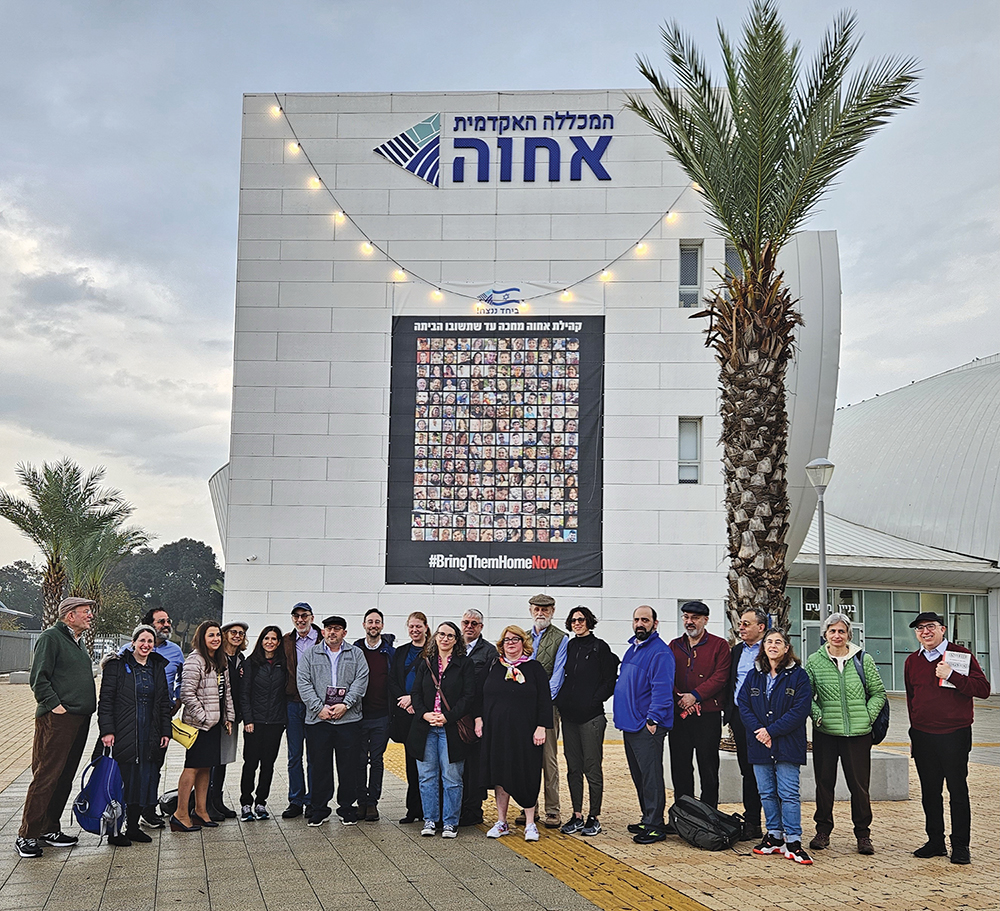
(Courtesy of YU) Following the initial shock of the Hamas massacre in southern Israel, and days of desperate, incessant news-following, many Jewish institutions and communities across North America rallied to do anything they could to help war-torn Israel.
Prof. Steven Fine, Yeshiva University’s Dean Pinkhos Churgin Professor of Jewish History and Director of the YU Center for Israel Studies, was no different. “I felt so helpless, bewildered and constantly on the edge of tears,” he recalled. “Helpless to do anything meaningful after the horrors of October 7. Helpless to respond to the anti-Israel, antisemitic onslaught on our campuses, and helpless to support colleagues and their students under siege.”
Fine, together with YU colleagues Prof. Ronnie Perelis, Alcalay Chair in Sephardic Studies and Director of the Rabbi Arthur Schneier Program for International Affairs; and Prof. Joshua Karlip, CIS Associate Director, quickly mobilized. They took their lead from grassroots initiatives coming together across the Jewish community. These included solidarity missions of students, faculty and others flying into the embattled Jewish state, some rolling up their sleeves and lending a hand wherever they could: helping abandoned kibbutzim to harvest their produce; looking after the children of evacuated families; and providing soldiers and their families with emotional and material aid.
Fine, Karlip and Perelis asked themselves how they, as scholars and leaders, could bring together Jewish studies faculty from across the United States, to make a real difference. It soon became clear: On so many campuses across the U.S., Jewish studies faculty were under fierce attack. Moreover, their Israeli counterparts were suffering international boycotts and diplomatic isolation. “From the safety of YU, the largest Jewish institution outside of Israel, I asked, how could we help?” Perelis explained. “And—how could we not?”
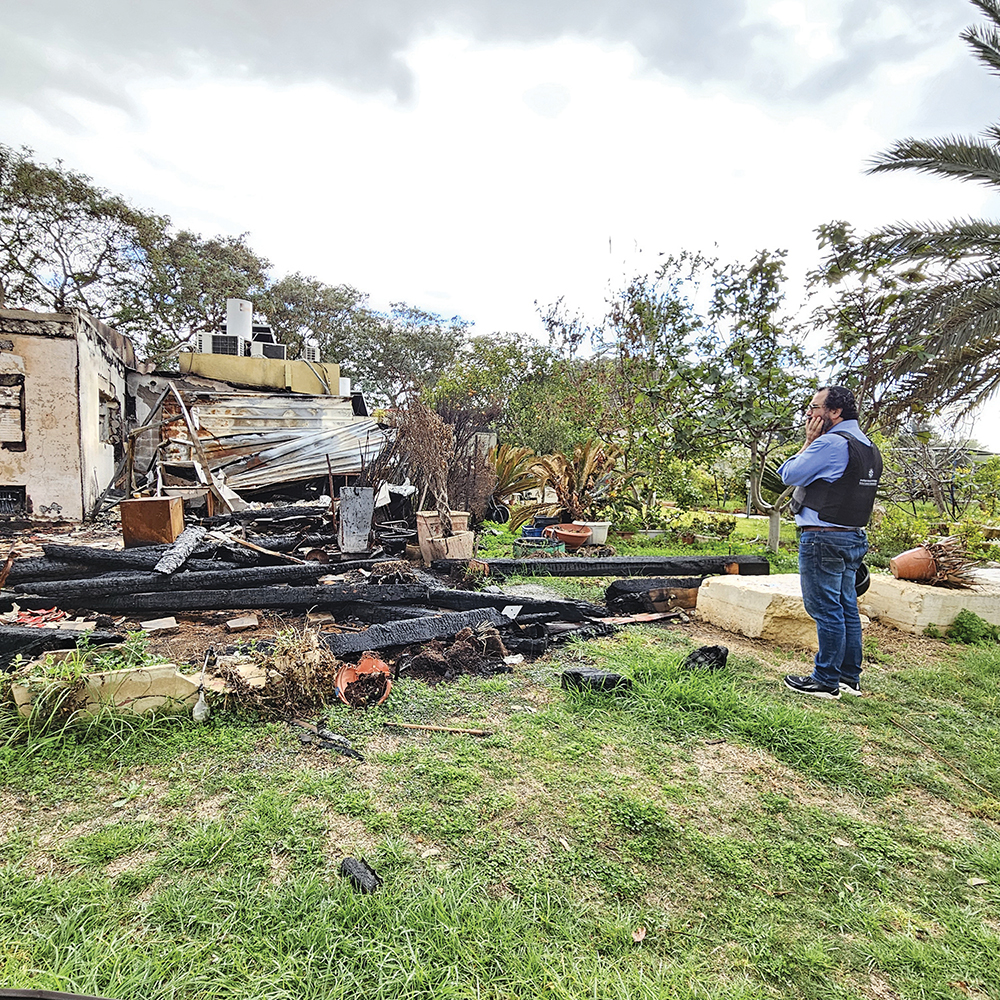
Thus was born “The Jewish Studies Scholars Solidarity Trip to Israel in Crisis.” The YU team began by partnering with colleagues from Catholic Theological Union in Chicago, Hebrew Union College and the Jewish Theological Seminary. In all, 21 leading scholars of Jewish studies who teach in diverse national institutions joined the trip. They came from Rutgers, Washington University, Notre Dame, Cleveland State, Emory, Reed College, and more.
The project was organized with the dedicated help of the Jewish Community Relations Council of New York and was supported logistically by YU Israel and the Israeli Consulate in New York. It was funded by each institution, and by gifts from supportive rabbis and their congregations, Jewish communal organizations and private donors. “We may have come from very different backgrounds, but we were all unified in our goal: nurturing and creating a community of academics committed to Israel and Zionism,” Karlip noted. Fine added, “This was klal Yisrael forging new bonds at a moment of crisis—a wonder to watch.”
The group spent three days at the beginning of January visiting Israeli academic institutions affected by the events of recent months. These included Achva College in Kiryat Malachi and Sapir College in Sderot, both in the front lines of the current war. “I realized how very little I knew about either of these institutions, even though some of our members are faculty of at least one of them,” commented newly appointed Association for Jewish Studies President Prof. Laura Arnold Leibman of Reed College, a member of the group. “Both colleges have made community outreach and in-service with local towns a crucial part of their curriculum. U.S. academics could learn a lot about cross-cultural communication from these institutions.”
“These leaders [of academic institutions in Israel] are committed to cultivating true diversity on campus and in Israeli society,” remarked Prof. Malka Simkovich of the Catholic Theological Union, a member of the organizing committee. “Their efforts to produce a pluralistic Israel is being undermined by international condemnations of Israel as an apartheid state. We were struck not only by the grief of these leaders, but also by their existential loneliness.”
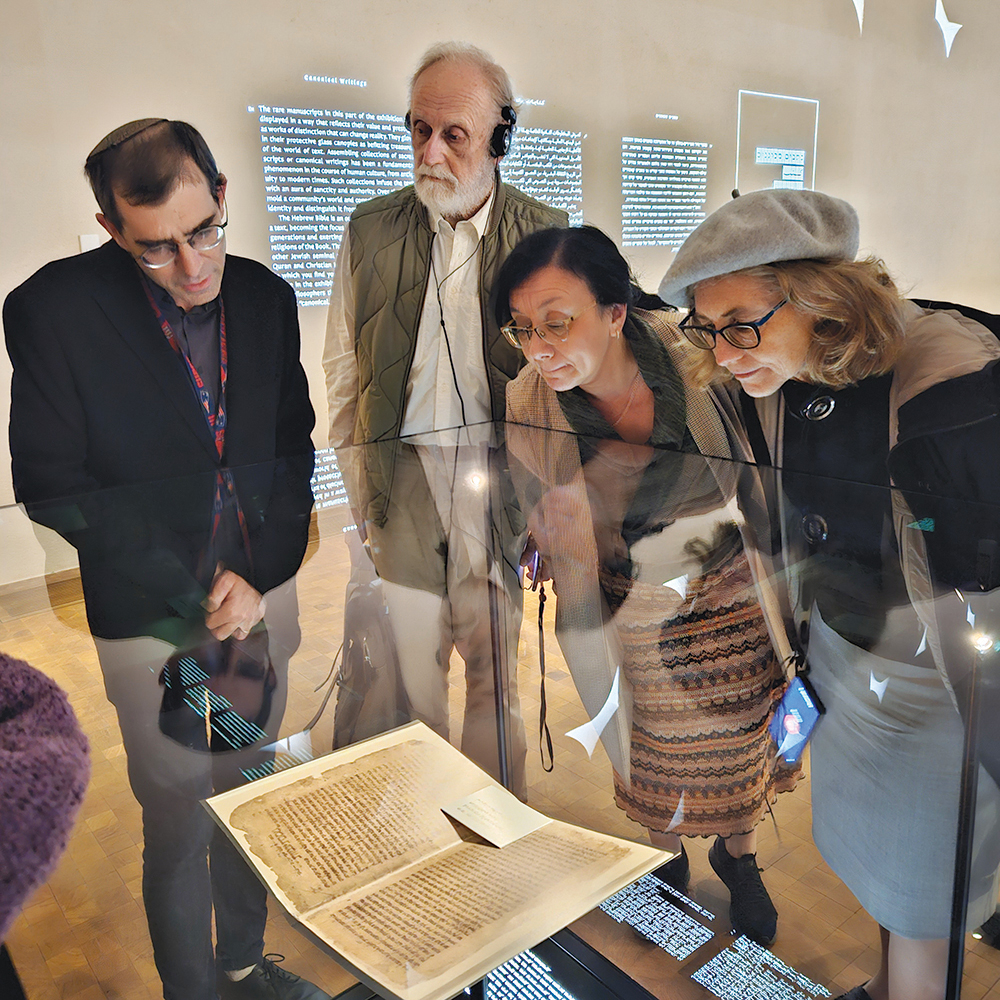
Participants visited Bar Ilan University and Tel Aviv University, meeting with the top leadership and learning with renowned faculty at each stop. They hosted a reception and conversation with 200 leading academics, library professionals and students at the new building of the National Library of Israel and spoke with hostage families in “Hostage Square” in Tel Aviv. At the new Israel Antiquities Authority campus in Jerusalem, they heard from “archaeologists at war”—the people helping to identify often-scant remains of the massacre victims. “We learned about their experiences, traumas and plans for a better future,” said Karlip. “Most of all, we were together in Israel, building unbreakable bonds for the day after.”
The visit to Kfar Aza, a kilometer from Gaza, was a highlight of the trip. The scholars—each wearing a helmet and bullet-proof vest—viewed the charred remains of this beautiful kibbutz, learning what happened there from a senior Israeli Army spokesman.
Clearly moved by this unique experience, Perelis called the trip “only the first step in a larger project to bring together scholars of Jewish studies as a community, to create a fellowship and to seed future projects.” Already on the table are upcoming joint conferences and journals with Israeli universities, archeological collaborations, and much more.
“This project has already created a mission-driven group of scholars,” concluded Fine. “Each of us will bring this experience back to our campuses, which will no doubt result in further scholarship, programming and conversations. It is time to prepare for a brighter future for Jews and Judaism in the academy and on campus—now with our eyes wide open. We have no time to be either helpless or frozen. We are a community of scholars committed to Israel—in all of its diversity—who need one another. American Jewry needs our leadership and collective voice, and our Israeli colleagues need our support.”
